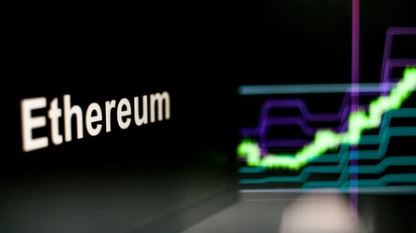I like to scan the headlines before I do any real reading or in-depth research. There are times when this practice can be anything from humorous to downright confusing. That’s especially true when comparing operational performance to share price performance, and even more so when comparing the share price and the operational results of two companies in the same time frame. That was the case this morning with Unilever (LSE:ULVR) and SABMiller (LSE:SAB).
Check out these contrasting headlines. (Emphasis mine.)
- Unilever’s annual TURNOVER FALLS as GROWTH SLOWS in EMERGING MARKETS.
- SABMiller’s third-quarter REVENUE RISES on EMERGING MARKET GROWTH.
But wait. There’s more! The conundrum continues … You would think that each company’s share prices would follow in kind with their respective reports. But you would be wrong. In fact, Unilever’s share price had
gained 2.83% by 14:10 today and SABMiller’s share price had
declined by 0.63%. Unilever’s share price has risen by 69.0 pence to 2506.0, whilst SABMiller’s has dropped by 19.5 pence to 3074.0.
I’m no guru like
Alpesh Patel, so these things are a mystery to me (You should read his column – It’s good). For now, I am going to go with Sir Isaac Newton and apply his third law of motion that “for every action there is an equal and
opposite reaction.” It’s just difficult for me to reckon how that applies to investor reactions.
Unilever’s turnover declined by 3.0% to €49.8 billion. Still, the company had an 8% increase in operating profit to €7.5 billion and a net profit of €5.3 billion, a 9% gain. Add an announced €0.269 per share quarterly dividend, and that might begin to shed some light on this puzzle. CEO,
Paul Polman, indicated that “
Growth continued to slow in emerging markets as a result of the impact of economic uncertainty and currency depreciation on consumer demand. Developed markets remained weak with little sign of any overall improvement despite the more positive macro-economic indicators in recent months.”
Nonetheless, he also summarized the overall annual results, saying that “2013 provides further evidence of the progress we are making in transforming Unilever into a sustainable growth company. we anticipate ongoing volatility in the external environment and are positioning Unilever accordingly. Although the investments we have made over the last five years ensure that we are well placed, we are determined to make Unilever even more agile and to fund further growth opportunities by driving out complexity and cost.”
So, I guess that, for Unilever, at least, the investor response has nothing to do with the headline and more to do with the actual results. Seems to be a case of one writer trying to turn a single statement of fact into a negative economic indicator. Naughty, naughty.
SABMiller CEO,
Alan Clark, described the company’s third quarter growth as being “
driven by our emerging market businesses where we are successfully targeting new consumers through affordability and premiumisation initiatives across our brand portfolios … in spite of continued weakness in consumer sentiment, which particularly impacted our European and North American businesses.” Business was difficult for a variety of reasons in the Czech Republic, Poland, Italy, Romania, and Russia, offsetting a 9% increase in the UK, where it does not appear that the pubs will be closing anytime soon. The company reported a troubling double-digit decline in the sales of Miller Genuine Draft, a long time mainstay in the U.S. market.
Now I think I have a clear picture of the SABMiller story as well, to the extent that the whole thing begins to makes sense. Here’s my theory: Investors are inclined to worry less about what is happening in emerging markets than they are about the sustainability of business in mature markets.
I may not be Alpesh Patel, and I am certainly not Isaac Newton, but I think I might be on to something.
CLICK HERE TO REGISTER FOR FREE ON ADVFN, the world's leading stocks and shares information website, provides the private investor with all the latest high-tech trading tools and includes live price data streaming, stock quotes and the option to access 'Level 2' data on all of the world's key exchanges (LSE, NYSE, NASDAQ, Euronext etc).
This area of the ADVFN.com site is for independent financial commentary. These blogs are provided by independent authors via a common carrier platform and do not represent the opinions of ADVFN Ltd. ADVFN Ltd does not monitor, approve, endorse or exert editorial control over these articles and does not therefore accept responsibility for or make any warranties in connection with or recommend that you or any third party rely on such information. The information available at ADVFN.com is for your general information and use and is not intended to address your particular requirements. In particular, the information does not constitute any form of advice or recommendation by ADVFN.COM and is not intended to be relied upon by users in making (or refraining from making) any investment decisions. Authors may or may not have positions in stocks that they are discussing but it should be considered very likely that their opinions are aligned with their trading and that they hold positions in companies, forex, commodities and other instruments they discuss.


 Hot Features
Hot Features












